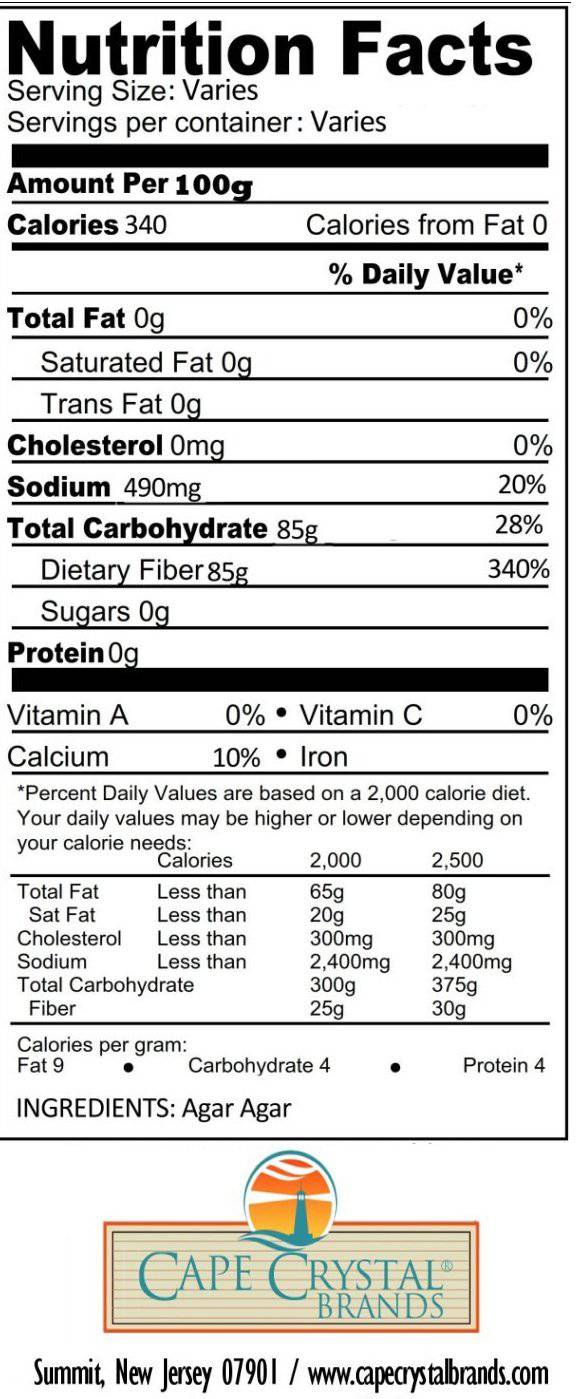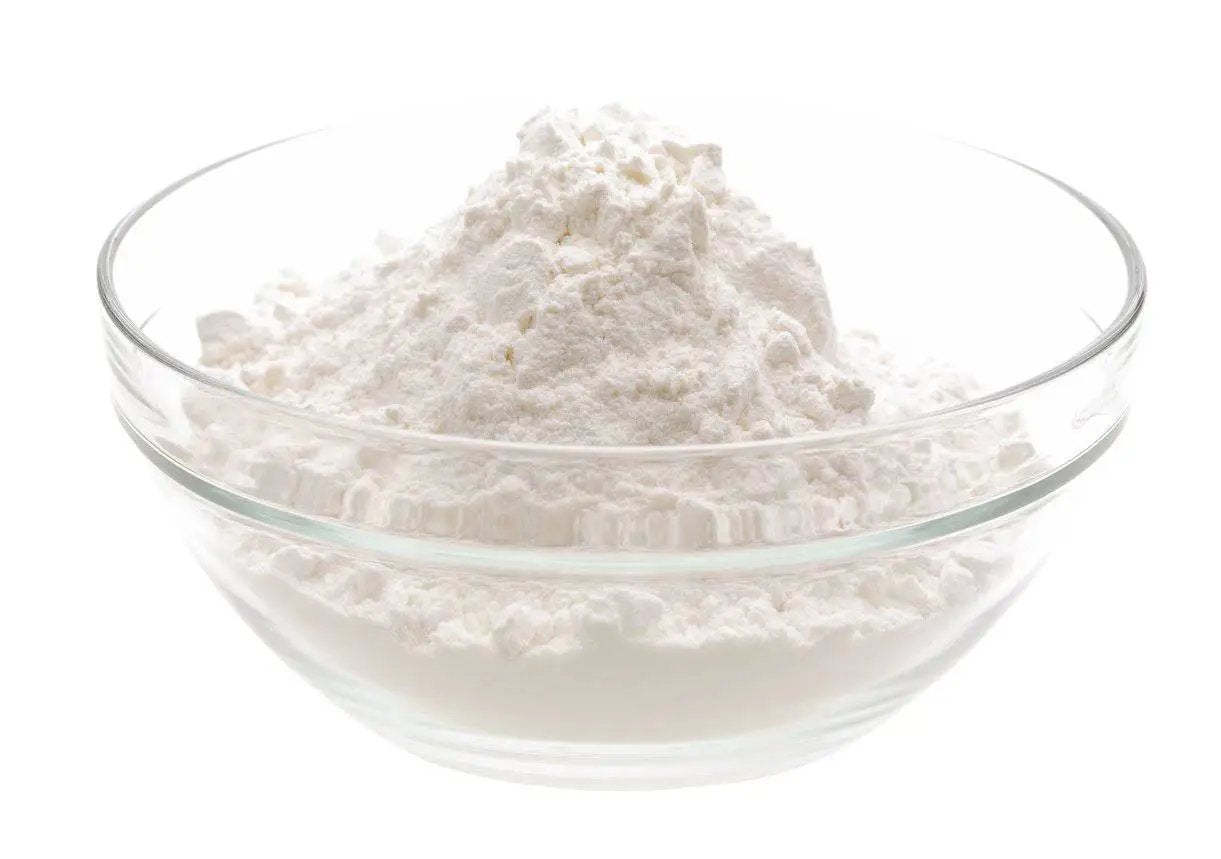
Uncover the Secrets of Ultra-Processed Foods
SUBSCRIBE TO OUR BLOG
Promotions, new products, and recipes.
Did you know that 70% of the average American's calories come from ultra-processed foods? This startling statistic highlights a growing concern in modern nutrition. Ultra-processed foods, defined by the NOVA classification system, are products created through extensive industrial processes, often containing additives like high-fructose corn syrup and emulsifiers. These foods are designed to be convenient and appealing but may hide harmful ingredients behind labels that claim to be "natural" or "wholesome."
Understanding ultra-processed foods is crucial for public health. Many products, such as "no added sugar" muesli and organic yogurts, may contain emulsifiers and starches that don't align with their wholesome marketing. The NOVA system helps identify these foods, categorizing them into groups based on their level of processing. Ultra-processed foods, in particular, are linked to serious health issues, making it essential to explore their impact on our diets and well-being.
Key Takeaways
- Ultra-processed foods account for 70% of the average American's calorie intake.
- These foods often contain hidden additives despite being marketed as natural.
- The NOVA classification system helps identify ultra-processed foods.
- Examples include "no added sugar" muesli and certain organic yogurts.
- Understanding these foods is crucial for improving public health and nutrition.
The Rise and Impact of Ultra-Processed Foods
Over the past few decades, there has been a dramatic rise in the consumption of ultra-processed foods. These products, often designed for convenience and appeal, now dominate supermarket shelves and household diets. Studies show that ultra-processed foods contribute to high energy intakes and are linked to chronic diseases like obesity, diabetes, and certain cancers.
National dietary surveys reveal a troubling trend: in high-income countries, the intake of ultra-processed foods has significantly increased. Research indicates that these foods are often high in added sugar, emulsifiers, and other additives that can negatively impact overall health. For instance, a large study over 19 years found a 31% higher mortality rate among those with the highest consumption of ultra-processed foods.

Furthermore, the role of added sugar in these products cannot be overlooked. Many ultra-processed foods, even those marketed as "natural," contain high amounts of sugar that contribute to health risks. This has led to a growing concern about the long-term effects of these foods on public health and dietary habits.
Defining Ultra-Processed Foods Using the NOVA Classification
The NOVA classification system categorizes foods into four distinct groups based on their processing levels. Ultra-processed foods fall under the fourth group and are defined by their extensive industrial manufacturing processes.
What Distinguishes Ultra-Processed from Processed Food?
While processed foods like canned vegetables are minimally altered, ultra-processed foods undergo significant transformations. They often include ingredients not found in home kitchens, such as high-fructose corn syrup and hydrogenated oils, which enhance flavor and texture.
The Role of Cosmetic Additives and Industrial Ingredients
Cosmetic additives, including emulsifiers and artificial flavors, play a crucial role in making ultra-processed foods highly palatable. These ingredients, along with industrial substances like modified starches, contribute to their appeal and shelf life.
Understanding these distinctions helps consumers make informed dietary choices, aligning with the NOVA system's purpose of promoting healthier eating habits.
Marketing "Natural" Products and Hidden Additives
Many products marketed as "natural" or "wholesome" can still contain unhealthy additives that aren't immediately apparent to consumers. This disconnect between marketing claims and actual ingredients is a growing concern in the food industry.
Misleading "Natural" Claims in Food Marketing
Food companies often use terms like "organic" or "no added sugar" to create a perception of healthiness. However, these products can still contain additives like emulsifiers and artificial flavors. For example, some organic yogurts and "no added sugar" cereals may include ingredients that are more common in ultra-processed foods than in wholesome, natural products.
How Additives Affect the Perception of Wholesome Foods
Additives play a significant role in enhancing the flavor, texture, and shelf life of food products. While these additives make foods more appealing, they can also mislead consumers into believing the products are healthier than they are. Research shows that the use of additives has increased over the past two decades, with more products containing multiple additives than ever before.
This trend highlights the need for greater transparency in food labeling. Consumers deserve clear information about what they're eating, especially when it comes to additives that might impact their health. By being more aware of these marketing tactics, shoppers can make more informed decisions about the foods they choose.
Health Risks Associated with Ultra-Processed Foods
The connection between diet and health has never been clearer, especially when it comes to ultra-processed foods. These products, often designed for convenience, have been linked to serious health risks that affect individuals of all ages.
Links to Chronic Diseases like Cancer and Diabetes
Research reveals a troubling association between ultra-processed foods and chronic diseases. Studies show that consuming these foods increases the risk of cancer, diabetes, and heart disease. For instance, a large-scale study found a 31% higher mortality rate among those with the highest consumption of ultra-processed foods.
High levels of sugar and fat in these products contribute to health risks. They can lead to weight gain and insulin resistance, which are key factors in developing type 2 diabetes. Additionally, the additives and preservatives in ultra-processed foods may play a role in increasing cancer risk.
The Impact on Overall Nutritional Quality
Ultra-processed foods are often energy-dense but nutrient-poor. They tend to be high in unhealthy fats and sugars while lacking essential nutrients like fiber, vitamins, and minerals. This imbalance can lead to poor overall nutrition and unhealthy eating patterns.
Epidemiological studies highlight that diets high in ultra-processed foods are associated with a higher risk of cardiovascular disease and obesity. The excessive consumption of these foods can also contribute to mental health issues, such as anxiety and depression.
It's clear that the risks associated with ultra-processed foods are significant. By understanding these risks, individuals can make informed choices to reduce their consumption and opt for healthier, whole foods. Public health awareness and education are crucial in addressing this growing concern and promoting better dietary habits.
Research Insights and Epidemiological Studies
Epidemiological studies have shed light on the profound impact of ultra-processed foods on public health. National dietary surveys and multiple studies provide concrete data on the impact of ultra-processed food intake on public health metrics.
Key Findings from National Dietary Surveys
National surveys reveal a troubling trend: in high-income countries, the intake of ultra-processed foods has significantly increased. Research indicates that these foods are often high in added sugar, emulsifiers, and other additives that can negatively impact overall health. For instance, a large study over 19 years found a 31% higher mortality rate among those with the highest consumption of ultra-processed foods.
Furthermore, the role of added sugar in these products cannot be overlooked. Many ultra-processed foods, even those marketed as "natural," contain high amounts of sugar that contribute to health risks. This has led to a growing concern about the long-term effects of these foods on public health and dietary habits.
The Impact on Overall Nutritional Quality
Ultra-processed foods are often energy-dense but nutrient-poor. They tend to be high in unhealthy fats and sugars while lacking essential nutrients like fiber, vitamins, and minerals. This imbalance can lead to poor overall nutrition and unhealthy eating patterns.
Epidemiological studies highlight that diets high in ultra-processed foods are associated with a higher risk of cardiovascular disease and obesity. The excessive consumption of these foods can also contribute to mental health issues, such as anxiety and depression.
Clarifying Methodologies and Results
The methodologies used in these studies, such as cohort studies, provide valuable insights into the long-term effects of ultra-processed food consumption. For example, the Framingham Offspring Study linked each additional daily serving of ultra-processed foods to a 7% increased risk of cardiovascular disease over 18 years.
Public Health Agencies' Role
Public health agencies play a crucial role in monitoring dietary trends and the impact of ultra-processed foods on population health. Their efforts help in understanding the broader implications and in developing strategies to mitigate these effects.
Impact on School-Aged Populations
Research involving school-aged populations underscores the early-life dietary impacts of ultra-processed foods. Studies have shown associations with higher rates of obesity and metabolic issues in adolescents, highlighting the need for early intervention and education.
It's clear that the risks associated with ultra-processed foods are significant. By understanding these risks, individuals can make informed choices to reduce their consumption and opt for healthier, whole foods. Public health awareness and education are crucial in addressing this growing concern and promoting better dietary habits.
Ultra-Processed Foods: What You Need to Know
Ultra-processed foods have become a cornerstone of modern diets, yet their impact on health is a growing concern. These products, often designed for convenience, undergo extensive industrial processes that transform raw ingredients into appealing, shelf-stable items. Understanding what ultra-processed foods are and how they affect your health is essential for making informed dietary choices.
Recent studies highlight that ultra-processed foods now account for more than 50% of dietary energy in high-income countries like the United States. These foods are often high in added sugars, unhealthy fats, and salt, while being low in essential nutrients like fiber, vitamins, and minerals. The NOVA classification system defines ultra-processed foods as industrial formulations with five or more ingredients, many of which are not used in home cooking, such as high-fructose corn syrup and hydrogenated oils.
The health risks associated with ultra-processed foods are significant. Research links their consumption to an increased risk of obesity, hypertension, heart disease, and certain cancers. Additionally, these foods tend to have high glycemic responses and low satiety potential, leading to overeating and poor dietary habits.
The food system plays a crucial role in the prevalence of ultra-processed foods. Aggressive marketing strategies, including those targeting children, contribute to their widespread consumption. Many products are marketed as "natural" or "wholesome," yet they contain hidden additives that can be misleading to consumers.
To make informed choices, consumers should be aware of the following:
- Check food labels for ingredients like high-fructose corn syrup and hydrogenated oils, which are common in ultra-processed foods.
- Be cautious of marketing claims like "organic" or "no added sugar," as these products may still contain unhealthy additives.
- Opt for whole, minimally processed foods whenever possible to improve dietary quality and reduce health risks.
By understanding the production, marketing, and health impacts of ultra-processed foods, consumers can take actionable steps to limit their intake and promote healthier eating habits. Awareness and education are key to addressing the growing public health concerns associated with these products.
Consumer Awareness: Reading Food Labels
Reading food labels is one of the most effective ways consumers can make informed choices about their diet. While labeling laws require ingredient lists, many additives can go unnoticed without proper awareness. This section will guide you through identifying hidden ultra-processed ingredients and understanding the importance of transparency in food labeling.
Ingredients and Additives to Watch Out For
When examining food labels, look for long lists of ingredients. These often signal ultra-processed foods. Be cautious of additives like emulsifiers and flavor enhancers, which are commonly found in these products. Here are some key markers to watch out for:
- Emulsifiers like lecithin and mono- and diglycerides
- Flavor enhancers such as yeast extract or hydrolyzed vegetable protein
- Salt content, which is often higher in ultra-processed foods
These ingredients can make foods more appealing but may also indicate a higher level of processing and potential health risks.
The Need for Improved Transparency and Regulation
Current labeling laws often fall short in providing clear information about ultra-processed ingredients. Many products marketed as "natural" or "wholesome" may still contain unhealthy additives. To address this, regulators could implement stricter guidelines and consider adding warning labels for ultra-processed foods. Consumers should advocate for transparency to make healthier choices.
By prioritizing transparency and understanding food labels, consumers can better navigate the complexities of modern nutrition and opt for healthier, less processed options.
Comparing Ultra-Processed to Minimally Processed Foods
When it comes to nutrition, understanding the differences between ultra-processed and minimally processed foods is crucial for making healthier choices. Ultra-processed foods undergo extensive industrial transformations, often losing essential nutrients and gaining unhealthy additives. On the other hand, minimally processed foods retain most of their natural goodness, offering more nutritional value.
Nutritional Differences and Dietary Implications
The contrast in nutritional profiles between ultra-processed and minimally processed foods is significant. Ultra-processed foods are often high in added sugars, unhealthy fats, and salt, while being low in fiber and essential nutrients. In comparison, minimally processed foods like fresh fruits, vegetables, and whole grains are rich in vitamins, minerals, and antioxidants.
- Ingredient Composition: Ultra-processed foods often contain long lists of ingredients, including emulsifiers and flavor enhancers. Minimally processed foods, such as frozen vegetables or whole grain bread, have fewer, more recognizable ingredients.
- Nutritional Profiles: Whole foods and minimally processed options provide superior nutrition. For example, steel-cut oats have more fiber and a lower glycemic index compared to highly processed instant oats.
- Dietary Impact: Studies show that diets high in ultra-processed foods can lead to overeating and poor dietary habits, while minimally processed foods promote satiety and better overall nutrition.
By choosing minimally processed foods, individuals can significantly improve the quality of their diet and reduce the risk of chronic diseases. Opting for whole foods and being mindful of processing levels are simple yet effective steps toward a healthier lifestyle.
Healthy Alternatives for Everyday Meals
Switching to healthier alternatives can make a big difference in your diet. By choosing whole and minimally processed foods, you can create delicious and nutritious meals that are easy to prepare at home.
Choosing Whole and Minimally Processed Options
Start your day with a nutritious breakfast. Instead of sugary cereals, try whole grain options or ancient grains like quinoa or sorghum. Pair them with fresh fruits for added flavor and nutrients.
For lunch, consider plant-based meals or salads with roasted vegetables. Leftover roasted chicken can add protein to your salad. Snacks can be as simple as whole fruits, carrot sticks, or a handful of nuts and seeds.
- Breakfast: Opt for whole grain cereals or plain Greek yogurt with fresh fruit and nuts.
- Lunch: Prepare salads with fresh vegetables and whole grains. Add protein like grilled chicken or tofu for variety.
- Dinner: Grill chicken or cook ground turkey during the weekend for easy weekday meals. Serve with steamed vegetables or a side of whole grains.
- Snacks: Keep whole fruits, carrot sticks, and nuts on hand for quick, healthy options.
By incorporating these simple changes into your daily meals, you can reduce your reliance on ultra-processed foods and improve your overall nutrition. Meal planning and preparation at home make it easier to stick to healthier choices.
Conclusion
In conclusion, the impact of ultra-processed foods on our diets and health is a pressing concern that demands attention. These foods, often marketed as wholesome, can contain hidden additives that mislead consumers. Recent studies and reviews highlight the need for improved regulations and clearer labeling to help consumers make informed choices.
Research shows that diets high in ultra-processed foods are linked to chronic diseases like obesity, diabetes, and heart disease. For example, a study found a 31% higher mortality rate among those consuming the most ultra-processed foods. This underscores the importance of understanding the differences between processed and minimally processed food groups.
Consumers should consider both the quality and quantity of their food choices. By opting for whole, minimally processed foods, individuals can improve their nutrition and reduce health risks. Policymakers must also prioritize nutritional integrity in the food system to promote public health.
Together, we can create a healthier future by making informed dietary decisions and advocating for better food policies.
FAQ
What are ultra-processed foods?
Ultra-processed foods are products that undergo significant industrial processing, often containing added sugars, fats, and artificial additives. Examples include sugary cereals, processed meats, and snack foods.
How do ultra-processed foods affect health?
Consuming ultra-processed foods is linked to higher risks of chronic diseases like obesity, diabetes, and heart disease due to their high sugar and fat content.
What are minimally processed foods?
Minimally processed foods, like frozen vegetables or roasted nuts, undergo basic processing without adding significant artificial ingredients, retaining more natural nutrients.
How can I reduce my intake of ultra-processed foods?
Focus on whole foods such as fruits, vegetables, and whole grains. Read food labels to identify added sugars and artificial additives, and opt for homemade meals using fresh ingredients.
Are all processed foods unhealthy?
Not all processed foods are unhealthy. Minimally processed foods like canned beans or whole grain bread can be part of a healthy diet, unlike ultra-processed options.
How can I identify ultra-processed foods on food labels?
Look for ingredients like added sugars, artificial flavors, and preservatives. If the list is long and includes unfamiliar terms, it's likely ultra-processed.
What are healthy alternatives to ultra-processed snacks?
Choose snacks like fruits, nuts, or veggie sticks with hummus. These options provide essential nutrients without added sugars or artificial ingredients.
Can ultra-processed foods be part of a balanced diet?
While occasional consumption is acceptable, regular intake should be limited. Prioritize whole and minimally processed foods for better nutritional balance.
How do ultra-processed foods impact weight management?
They often contain empty calories, leading to overeating and weight gain. Choosing nutrient-dense foods helps maintain a healthy weight.
What role do additives play in ultra-processed foods?
Additives enhance taste and shelf life but can negatively impact health. Be mindful of their presence and opt for products with fewer additives.
Did you know that 70% of the average American's calories come from ultra-processed foods? This startling statistic highlights a growing concern in modern nutrition. Ultra-processed foods, defined by the NOVA classification system, are products created through extensive industrial processes, often containing additives like high-fructose corn syrup and emulsifiers. These foods are designed to be convenient and appealing but may hide harmful ingredients behind labels that claim to be "natural" or "wholesome."
Understanding ultra-processed foods is crucial for public health. Many products, such as "no added sugar" muesli and organic yogurts, may contain emulsifiers and starches that don't align with their wholesome marketing. The NOVA system helps identify these foods, categorizing them into groups based on their level of processing. Ultra-processed foods, in particular, are linked to serious health issues, making it essential to explore their impact on our diets and well-being.
Key Takeaways
- Ultra-processed foods account for 70% of the average American's calorie intake.
- These foods often contain hidden additives despite being marketed as natural.
- The NOVA classification system helps identify ultra-processed foods.
- Examples include "no added sugar" muesli and certain organic yogurts.
- Understanding these foods is crucial for improving public health and nutrition.
The Rise and Impact of Ultra-Processed Foods
Over the past few decades, there has been a dramatic rise in the consumption of ultra-processed foods. These products, often designed for convenience and appeal, now dominate supermarket shelves and household diets. Studies show that ultra-processed foods contribute to high energy intakes and are linked to chronic diseases like obesity, diabetes, and certain cancers.
National dietary surveys reveal a troubling trend: in high-income countries, the intake of ultra-processed foods has significantly increased. Research indicates that these foods are often high in added sugar, emulsifiers, and other additives that can negatively impact overall health. For instance, a large study over 19 years found a 31% higher mortality rate among those with the highest consumption of ultra-processed foods.

Furthermore, the role of added sugar in these products cannot be overlooked. Many ultra-processed foods, even those marketed as "natural," contain high amounts of sugar that contribute to health risks. This has led to a growing concern about the long-term effects of these foods on public health and dietary habits.
Defining Ultra-Processed Foods Using the NOVA Classification
The NOVA classification system categorizes foods into four distinct groups based on their processing levels. Ultra-processed foods fall under the fourth group and are defined by their extensive industrial manufacturing processes.
What Distinguishes Ultra-Processed from Processed Food?
While processed foods like canned vegetables are minimally altered, ultra-processed foods undergo significant transformations. They often include ingredients not found in home kitchens, such as high-fructose corn syrup and hydrogenated oils, which enhance flavor and texture.
The Role of Cosmetic Additives and Industrial Ingredients
Cosmetic additives, including emulsifiers and artificial flavors, play a crucial role in making ultra-processed foods highly palatable. These ingredients, along with industrial substances like modified starches, contribute to their appeal and shelf life.
Understanding these distinctions helps consumers make informed dietary choices, aligning with the NOVA system's purpose of promoting healthier eating habits.
Marketing "Natural" Products and Hidden Additives
Many products marketed as "natural" or "wholesome" can still contain unhealthy additives that aren't immediately apparent to consumers. This disconnect between marketing claims and actual ingredients is a growing concern in the food industry.
Misleading "Natural" Claims in Food Marketing
Food companies often use terms like "organic" or "no added sugar" to create a perception of healthiness. However, these products can still contain additives like emulsifiers and artificial flavors. For example, some organic yogurts and "no added sugar" cereals may include ingredients that are more common in ultra-processed foods than in wholesome, natural products.
How Additives Affect the Perception of Wholesome Foods
Additives play a significant role in enhancing the flavor, texture, and shelf life of food products. While these additives make foods more appealing, they can also mislead consumers into believing the products are healthier than they are. Research shows that the use of additives has increased over the past two decades, with more products containing multiple additives than ever before.
This trend highlights the need for greater transparency in food labeling. Consumers deserve clear information about what they're eating, especially when it comes to additives that might impact their health. By being more aware of these marketing tactics, shoppers can make more informed decisions about the foods they choose.
Health Risks Associated with Ultra-Processed Foods
The connection between diet and health has never been clearer, especially when it comes to ultra-processed foods. These products, often designed for convenience, have been linked to serious health risks that affect individuals of all ages.
Links to Chronic Diseases like Cancer and Diabetes
Research reveals a troubling association between ultra-processed foods and chronic diseases. Studies show that consuming these foods increases the risk of cancer, diabetes, and heart disease. For instance, a large-scale study found a 31% higher mortality rate among those with the highest consumption of ultra-processed foods.
High levels of sugar and fat in these products contribute to health risks. They can lead to weight gain and insulin resistance, which are key factors in developing type 2 diabetes. Additionally, the additives and preservatives in ultra-processed foods may play a role in increasing cancer risk.
The Impact on Overall Nutritional Quality
Ultra-processed foods are often energy-dense but nutrient-poor. They tend to be high in unhealthy fats and sugars while lacking essential nutrients like fiber, vitamins, and minerals. This imbalance can lead to poor overall nutrition and unhealthy eating patterns.
Epidemiological studies highlight that diets high in ultra-processed foods are associated with a higher risk of cardiovascular disease and obesity. The excessive consumption of these foods can also contribute to mental health issues, such as anxiety and depression.
It's clear that the risks associated with ultra-processed foods are significant. By understanding these risks, individuals can make informed choices to reduce their consumption and opt for healthier, whole foods. Public health awareness and education are crucial in addressing this growing concern and promoting better dietary habits.
Research Insights and Epidemiological Studies
Epidemiological studies have shed light on the profound impact of ultra-processed foods on public health. National dietary surveys and multiple studies provide concrete data on the impact of ultra-processed food intake on public health metrics.
Key Findings from National Dietary Surveys
National surveys reveal a troubling trend: in high-income countries, the intake of ultra-processed foods has significantly increased. Research indicates that these foods are often high in added sugar, emulsifiers, and other additives that can negatively impact overall health. For instance, a large study over 19 years found a 31% higher mortality rate among those with the highest consumption of ultra-processed foods.
Furthermore, the role of added sugar in these products cannot be overlooked. Many ultra-processed foods, even those marketed as "natural," contain high amounts of sugar that contribute to health risks. This has led to a growing concern about the long-term effects of these foods on public health and dietary habits.
The Impact on Overall Nutritional Quality
Ultra-processed foods are often energy-dense but nutrient-poor. They tend to be high in unhealthy fats and sugars while lacking essential nutrients like fiber, vitamins, and minerals. This imbalance can lead to poor overall nutrition and unhealthy eating patterns.
Epidemiological studies highlight that diets high in ultra-processed foods are associated with a higher risk of cardiovascular disease and obesity. The excessive consumption of these foods can also contribute to mental health issues, such as anxiety and depression.
Clarifying Methodologies and Results
The methodologies used in these studies, such as cohort studies, provide valuable insights into the long-term effects of ultra-processed food consumption. For example, the Framingham Offspring Study linked each additional daily serving of ultra-processed foods to a 7% increased risk of cardiovascular disease over 18 years.
Public Health Agencies' Role
Public health agencies play a crucial role in monitoring dietary trends and the impact of ultra-processed foods on population health. Their efforts help in understanding the broader implications and in developing strategies to mitigate these effects.
Impact on School-Aged Populations
Research involving school-aged populations underscores the early-life dietary impacts of ultra-processed foods. Studies have shown associations with higher rates of obesity and metabolic issues in adolescents, highlighting the need for early intervention and education.
It's clear that the risks associated with ultra-processed foods are significant. By understanding these risks, individuals can make informed choices to reduce their consumption and opt for healthier, whole foods. Public health awareness and education are crucial in addressing this growing concern and promoting better dietary habits.
Ultra-Processed Foods: What You Need to Know
Ultra-processed foods have become a cornerstone of modern diets, yet their impact on health is a growing concern. These products, often designed for convenience, undergo extensive industrial processes that transform raw ingredients into appealing, shelf-stable items. Understanding what ultra-processed foods are and how they affect your health is essential for making informed dietary choices.
Recent studies highlight that ultra-processed foods now account for more than 50% of dietary energy in high-income countries like the United States. These foods are often high in added sugars, unhealthy fats, and salt, while being low in essential nutrients like fiber, vitamins, and minerals. The NOVA classification system defines ultra-processed foods as industrial formulations with five or more ingredients, many of which are not used in home cooking, such as high-fructose corn syrup and hydrogenated oils.
The health risks associated with ultra-processed foods are significant. Research links their consumption to an increased risk of obesity, hypertension, heart disease, and certain cancers. Additionally, these foods tend to have high glycemic responses and low satiety potential, leading to overeating and poor dietary habits.
The food system plays a crucial role in the prevalence of ultra-processed foods. Aggressive marketing strategies, including those targeting children, contribute to their widespread consumption. Many products are marketed as "natural" or "wholesome," yet they contain hidden additives that can be misleading to consumers.
To make informed choices, consumers should be aware of the following:
- Check food labels for ingredients like high-fructose corn syrup and hydrogenated oils, which are common in ultra-processed foods.
- Be cautious of marketing claims like "organic" or "no added sugar," as these products may still contain unhealthy additives.
- Opt for whole, minimally processed foods whenever possible to improve dietary quality and reduce health risks.
By understanding the production, marketing, and health impacts of ultra-processed foods, consumers can take actionable steps to limit their intake and promote healthier eating habits. Awareness and education are key to addressing the growing public health concerns associated with these products.
Consumer Awareness: Reading Food Labels
Reading food labels is one of the most effective ways consumers can make informed choices about their diet. While labeling laws require ingredient lists, many additives can go unnoticed without proper awareness. This section will guide you through identifying hidden ultra-processed ingredients and understanding the importance of transparency in food labeling.
Ingredients and Additives to Watch Out For
When examining food labels, look for long lists of ingredients. These often signal ultra-processed foods. Be cautious of additives like emulsifiers and flavor enhancers, which are commonly found in these products. Here are some key markers to watch out for:
- Emulsifiers like lecithin and mono- and diglycerides
- Flavor enhancers such as yeast extract or hydrolyzed vegetable protein
- Salt content, which is often higher in ultra-processed foods
These ingredients can make foods more appealing but may also indicate a higher level of processing and potential health risks.
The Need for Improved Transparency and Regulation
Current labeling laws often fall short in providing clear information about ultra-processed ingredients. Many products marketed as "natural" or "wholesome" may still contain unhealthy additives. To address this, regulators could implement stricter guidelines and consider adding warning labels for ultra-processed foods. Consumers should advocate for transparency to make healthier choices.
By prioritizing transparency and understanding food labels, consumers can better navigate the complexities of modern nutrition and opt for healthier, less processed options.
Comparing Ultra-Processed to Minimally Processed Foods
When it comes to nutrition, understanding the differences between ultra-processed and minimally processed foods is crucial for making healthier choices. Ultra-processed foods undergo extensive industrial transformations, often losing essential nutrients and gaining unhealthy additives. On the other hand, minimally processed foods retain most of their natural goodness, offering more nutritional value.
Nutritional Differences and Dietary Implications
The contrast in nutritional profiles between ultra-processed and minimally processed foods is significant. Ultra-processed foods are often high in added sugars, unhealthy fats, and salt, while being low in fiber and essential nutrients. In comparison, minimally processed foods like fresh fruits, vegetables, and whole grains are rich in vitamins, minerals, and antioxidants.
- Ingredient Composition: Ultra-processed foods often contain long lists of ingredients, including emulsifiers and flavor enhancers. Minimally processed foods, such as frozen vegetables or whole grain bread, have fewer, more recognizable ingredients.
- Nutritional Profiles: Whole foods and minimally processed options provide superior nutrition. For example, steel-cut oats have more fiber and a lower glycemic index compared to highly processed instant oats.
- Dietary Impact: Studies show that diets high in ultra-processed foods can lead to overeating and poor dietary habits, while minimally processed foods promote satiety and better overall nutrition.
By choosing minimally processed foods, individuals can significantly improve the quality of their diet and reduce the risk of chronic diseases. Opting for whole foods and being mindful of processing levels are simple yet effective steps toward a healthier lifestyle.
Healthy Alternatives for Everyday Meals
Switching to healthier alternatives can make a big difference in your diet. By choosing whole and minimally processed foods, you can create delicious and nutritious meals that are easy to prepare at home.
Choosing Whole and Minimally Processed Options
Start your day with a nutritious breakfast. Instead of sugary cereals, try whole grain options or ancient grains like quinoa or sorghum. Pair them with fresh fruits for added flavor and nutrients.
For lunch, consider plant-based meals or salads with roasted vegetables. Leftover roasted chicken can add protein to your salad. Snacks can be as simple as whole fruits, carrot sticks, or a handful of nuts and seeds.
- Breakfast: Opt for whole grain cereals or plain Greek yogurt with fresh fruit and nuts.
- Lunch: Prepare salads with fresh vegetables and whole grains. Add protein like grilled chicken or tofu for variety.
- Dinner: Grill chicken or cook ground turkey during the weekend for easy weekday meals. Serve with steamed vegetables or a side of whole grains.
- Snacks: Keep whole fruits, carrot sticks, and nuts on hand for quick, healthy options.
By incorporating these simple changes into your daily meals, you can reduce your reliance on ultra-processed foods and improve your overall nutrition. Meal planning and preparation at home make it easier to stick to healthier choices.
Conclusion
In conclusion, the impact of ultra-processed foods on our diets and health is a pressing concern that demands attention. These foods, often marketed as wholesome, can contain hidden additives that mislead consumers. Recent studies and reviews highlight the need for improved regulations and clearer labeling to help consumers make informed choices.
Research shows that diets high in ultra-processed foods are linked to chronic diseases like obesity, diabetes, and heart disease. For example, a study found a 31% higher mortality rate among those consuming the most ultra-processed foods. This underscores the importance of understanding the differences between processed and minimally processed food groups.
Consumers should consider both the quality and quantity of their food choices. By opting for whole, minimally processed foods, individuals can improve their nutrition and reduce health risks. Policymakers must also prioritize nutritional integrity in the food system to promote public health.
Together, we can create a healthier future by making informed dietary decisions and advocating for better food policies.
FAQ
What are ultra-processed foods?
Ultra-processed foods are products that undergo significant industrial processing, often containing added sugars, fats, and artificial additives. Examples include sugary cereals, processed meats, and snack foods.
How do ultra-processed foods affect health?
Consuming ultra-processed foods is linked to higher risks of chronic diseases like obesity, diabetes, and heart disease due to their high sugar and fat content.
What are minimally processed foods?
Minimally processed foods, like frozen vegetables or roasted nuts, undergo basic processing without adding significant artificial ingredients, retaining more natural nutrients.
How can I reduce my intake of ultra-processed foods?
Focus on whole foods such as fruits, vegetables, and whole grains. Read food labels to identify added sugars and artificial additives, and opt for homemade meals using fresh ingredients.
Are all processed foods unhealthy?
Not all processed foods are unhealthy. Minimally processed foods like canned beans or whole grain bread can be part of a healthy diet, unlike ultra-processed options.
How can I identify ultra-processed foods on food labels?
Look for ingredients like added sugars, artificial flavors, and preservatives. If the list is long and includes unfamiliar terms, it's likely ultra-processed.
What are healthy alternatives to ultra-processed snacks?
Choose snacks like fruits, nuts, or veggie sticks with hummus. These options provide essential nutrients without added sugars or artificial ingredients.
Can ultra-processed foods be part of a balanced diet?
While occasional consumption is acceptable, regular intake should be limited. Prioritize whole and minimally processed foods for better nutritional balance.
How do ultra-processed foods impact weight management?
They often contain empty calories, leading to overeating and weight gain. Choosing nutrient-dense foods helps maintain a healthy weight.
What role do additives play in ultra-processed foods?
Additives enhance taste and shelf life but can negatively impact health. Be mindful of their presence and opt for products with fewer additives.

|
About the Author Ed is the founder of Cape Crystal Brands, editor of the Beginner’s Guide to Hydrocolloids, and a passionate advocate for making food science accessible to all. Discover premium ingredients, expert resources, and free formulation tools at capecrystalbrands.com/tools. — Ed |
- Choosing a selection results in a full page refresh.





























